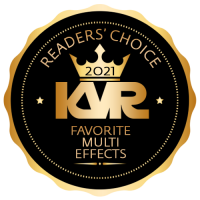Akkordica Virtual Accordion, Concertina, Bandoneon, Harmonica and Melodica VST VST3 Audio Unit Plugins plus EXS24 (.exs) and Kontakt (.nki) Sample Libraries
Akkordica is a virtual accordion, concertina, bandoneon, harmonica and melodica instrument that covers a wide range of sounds and combines a traditional hand-held bellows-driven performance and modern digital functionality. This squeeze box and free reed wind instrument is suitable for different musical styles, be it traditional, popular or classical. Available as plugin in VST 32-bit and 64-bit and VST3 64-bit versions for Windows as well as in Audio Unit, VST and VST3 for macOS. Also available in EXS24 and Kontakt Sample Libraries.
Features.
• Quick selector to switch between different preset sounds:
01 • Anglo Concertina 0:00
02 • Chemnitzer Concertina 0:54
03 • Hohner Accordion 1:47
04 • Strasser Accordion 2:38
05 • Musette Accordion 3:50
06 • Bandoneon (Tango Accordion) 4:36
07 • Bayan (Chromatic Button Accordion) 5:37
08 • Melodeon (Diatonic Button Accordion) 6:24
09 • Steirische Harmonika (Styrian Accordion) 7:05
10 • Piano Keyboard Accordion 7:45
11 • Accordina (Harmonicon) 8:45
12 • Harmonica (Natural) 9:18
13 • Harmonica (Vibrato) 10:06
14 • Melodica (Pianica) 10:37.
• Akkordica allows you to reproduce many different accordion types (diatonic and chromatic) for various genres of musical styles such as Folk, Rock, Blues, Jazz, Polka, Tango, Bal-musette, Cajun, Zydeco, Classical, Schrammelmusik, Klezmer, Levenslied, Sevdalinka, Boeremusiek, Forró, Merengue, Cueca, Milonga, Chamamé, Cumbia, Vallenato, Norteño, Tex-Mex, Saltarello, Tarantella, Ceol, Basque Trikitixa and Inuit music.
• The harmonica (known as a French harp or mouth organ) comes with two modes: natural and vibrato, to be used in many musical genres, notably in blues, American folk music, classical music, jazz, country, and rock and roll.
• ADSR envelope generator with Attack, Sustain, Decay and Release parameters:
- Attack determines the time it takes for the note to get to the maximum level.
- Decay determines the time it takes for the note to go from the maximum level to the sustain level (controlled by Sustain).
- Sustain determines level the sound is played at while the note is held (after the other envelope states, Attack and Decay, have been completed).
- Release determines the time it takes for the note to fall from the sustain level to zero (silence) level when it is released.
• Pitch Bend: The Pitch Bend knob directly changes the pitch of the selected instrument.
- Pitch Bend center position: is normal pitch.
- Pitch Bend down: Specifies the amount of pitch change that will occur when the pitch bend/modulation lever is moved to the left.
- Pitch Bend up: Specifies the amount of pitch change that will occur when the pitch bend/modulation lever is moved the right.
• Low-Frequency Oscillator Controls: These knobs apply LFO modulation to the selected instrument. By using the LFO to modulate various aspects of the audio signal, you can apply effects such as vibrato or tremolo.
- Rate: This knob controls the frequency. Turn clockwise for a faster modulation rate.
- Depth: This knob controls the amplitude. With a lower setting, the resulting modulation is subtle, while a higher depth will result in a much more extreme effect.
• Reverb built-in: provides a spaciousness and depth to simulate the sound reflections from walls, floors and ceilings following a sound created in an acoustically reflective environment. Small rooms can be modeled as well as large spaces.
• Filter Type. Combo box to switch between the following options:
- Low Pass (LPF): a filter that passes signals with a frequency lower than a certain cutoff frequency and attenuates signals with frequencies higher than the cutoff frequency.
- High Pass (HPF): a filter that passes signals with a frequency higher than a certain cutoff frequency and attenuates signals with frequencies lower than the cutoff frequency.
- None: No filter is applied.
- Cutoff Frequency Filter: Sets the cutoff frequency for the low pass and high pass filters.
• Amplitude Range Parameters: It controls the loudness, the way in which we perceive amplitude.The sensitivity level is set by the user:
- Amplitude range (low) - sets amplitude range, lower bound (dB)
- Amplitude range (high) - sets amplitude range, upper bound (dB)
• Volume: Adjusts the volume of the instrument.
• Panning potentiometer control: Set the panning of the instrument. Adjusts the stereo pan position of the signal output, which determines how much of signal is sent to the left and right channels.
• MIDI CC Automation
With Akkordica you can choose from a wide selection of accordion, concertina, bandoneon, harmonica and melodica sounds, playing and feeling the traditional sounds as well as the new vast array built-in effects for the digital age.


